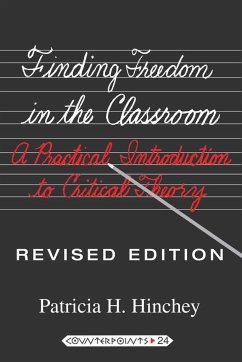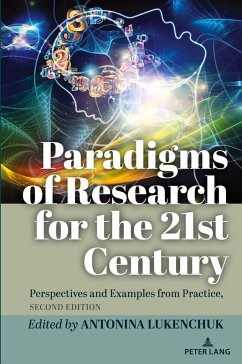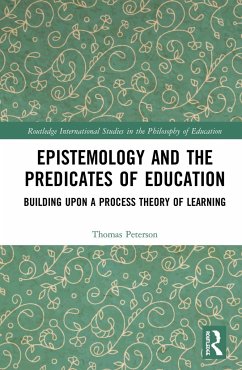
Teachers and the Epistemology of History
.
Herausgegeben: Åström Elmersjö, Henrik; Zanazanian, Paul
Versandkostenfrei!
Versandfertig in 6-10 Tagen
38,99 €
inkl. MwSt.

PAYBACK Punkte
19 °P sammeln!
This edited book explores conceptual as well as empirical approaches to epistemic beliefs that teachers of history might hold. In many parts of the world, history teachers are tasked with both upholding historical national myths and at the same time giving students the tools needed to deconstruct history and think critically. This ambiguity embedded in the combination of reconstruction and deconstruction is a difficult landscape for teachers to navigate. The chapters of this book therefore explore how teachers reason regarding the epistemic nature of history and how this impacts their teaching...
This edited book explores conceptual as well as empirical approaches to epistemic beliefs that teachers of history might hold. In many parts of the world, history teachers are tasked with both upholding historical national myths and at the same time giving students the tools needed to deconstruct history and think critically. This ambiguity embedded in the combination of reconstruction and deconstruction is a difficult landscape for teachers to navigate. The chapters of this book therefore explore how teachers reason regarding the epistemic nature of history and how this impacts their teaching, interpretation of curricula and relationship to their students. Contributions consider the implications for prospective history teachers and in-service training, challenges to the field and point to ways forward. The book will be of interest to academics and students of history education, as well as practising teachers and museum curators.
This is an open access book.
This is an open access book.












